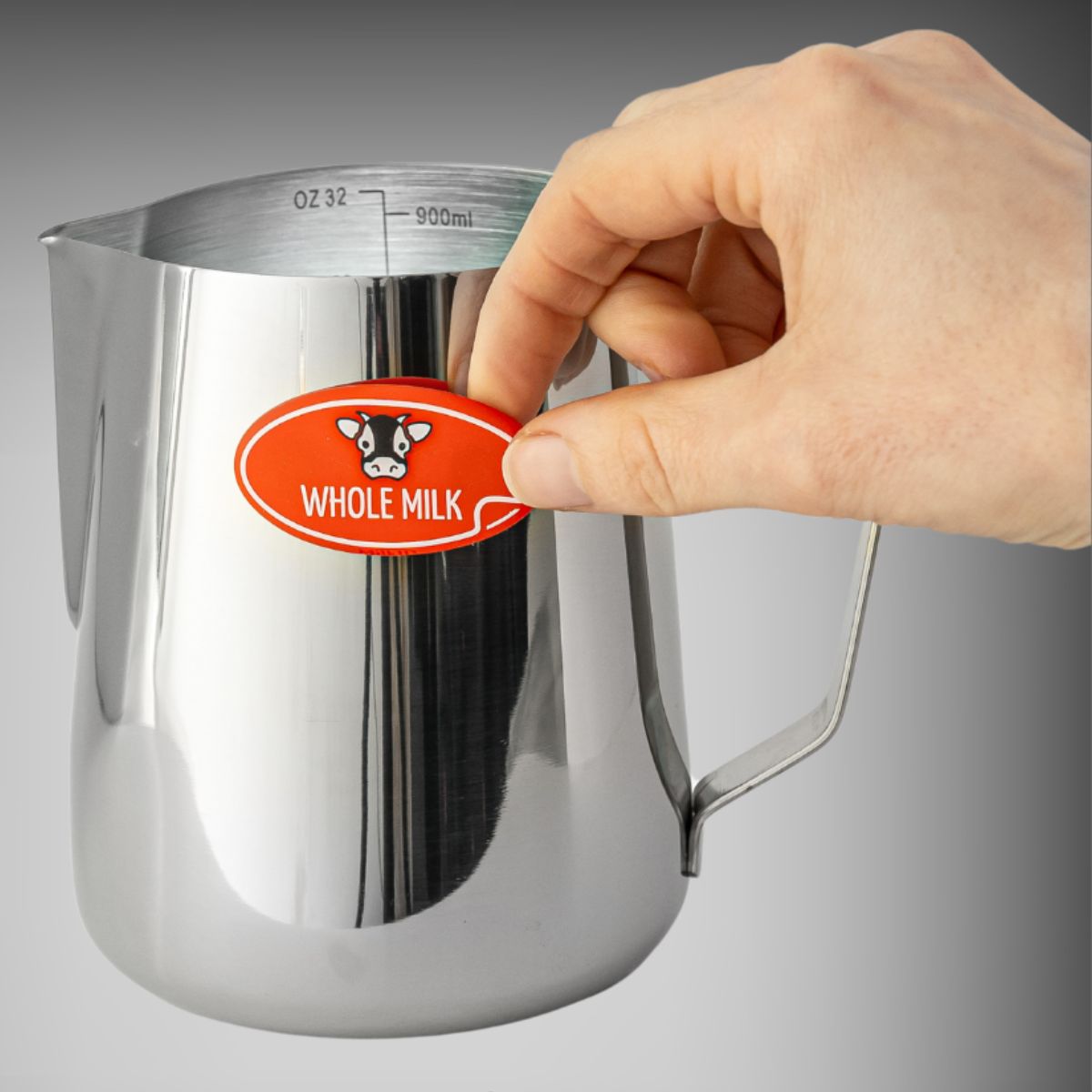Designed to prevent allergic reactions while also minimizing waste in coffee shops, a new color-coded magnet and compatible pitcher system called MilkID recently made its launch.
MilkID’s custom steaming pitchers are made from a stainless steel formulated specifically for strong compatibility with magnets. The flexible 2-inch-wide silicone MilkID labels come in a range of bright colors and are clearly labeled with words and icons for four different types of dairy, as well as oat, almond, soy and coconut milks.
The UK-based company was founded late last year by Sandy Macfarlane, a former chef and hospitality entrepreneur.
Macfarlane said the system was created to eliminate danger to customers who may suffer from dairy or nut allergies by preventing cross-contamination, while also protecting businesses from liability and expenses associated with unnecessary waste.
“One of my most formative experiences was running a pop-up cafe on Dover Street in London, where we built a loyal following of customers who were aware of their allergies,” Macfarlane told Daily Coffee News. “They kept coming back because we treated allergens with the same seriousness and discipline you’d expect in a professional kitchen, not as a tick-box exercise.”
MilkID tags aim to improve upon common cafe solutions such as handwritten tape labels, permanently etched pitchers or colored pitchers by combining their best qualities and avoiding their potential pitfalls. Through the magnets, the system combines color, icons and text to provide clarity among busy baristas.
“Handwritten tape labels often fade, fall off, or become unreadable, and they’re not food-safe,” said Macfarlane. “Our solution is durable, professional, and seamlessly integrated into the workflow, eliminating the need for extra steps or guesswork.”
MilkID products officially launched for sale this month via the company’s website. Despite some challenges related to tariffs, Macfarlane said the London-based company’s current focus is on building awareness and adoption in the United States market, where early demand has been strong. Expansion into the UK and European cafe sectors will come next, with a focus on independent coffee shops, roasters and hospitality groups.
“We see MilkID not just as a product, but as part of a broader movement to normalize allergen safety behind the bar,” said Macfarlane. “Too often, allergen protocols are treated as temporary fixes or compliance checkboxes. We want to help shift that mindset toward permanent, practical solutions that protect both customers and businesses.”
Comments? Questions? News to share? Contact DCN’s editors here. For all the latest coffee industry news, subscribe to the DCN newsletter.
Related Posts
Howard Bryman
Howard Bryman is the associate editor of Daily Coffee News by Roast Magazine. He is based in Portland, Oregon.











Comment